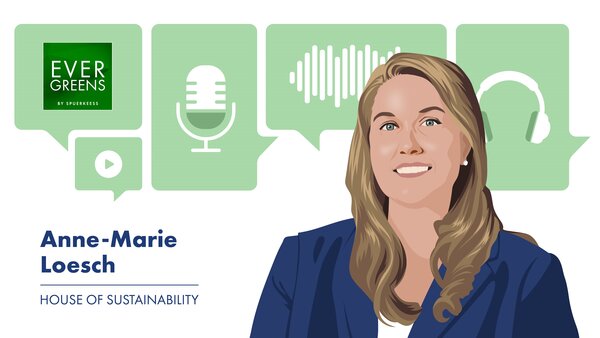5 useful tips:
1. If you want to buy a property, there’s only one thing to keep in mind: location, location, location. Buying for buying’s sake makes no sense at all. The neighbourhood, the surrounding real estate projects that will develop over the next few years, the attractiveness of the location...all these criteria are relevant to the location and they’re all crucial.
2. Knowing yourself is the most important thing. Having a plan means being able to look ahead, and invest according to your needs. Being a homeowner, wanting to save for a family later on, starting a business, travelling the world... Life plans are personal. Only you can decide in what and how you want to invest your time, energy and money.
3. It is never too late to start saving and investing. EUR 100 per month is EUR 1.200 per year and in 20 years you’ve already saved EUR 24.000. It’s a simple question of regularity. Saving is just a matter of habit.
4. Diversification. There’s no point in putting all your eggs in one basket. To ensure maximum stability, it is important to diversify your investments so that you don’t risk losing everything in the future.
5. Invest in what you believe in. Invest in the world of the future that you want to live in. Each person has different values. Make sure that your investments represent who you are. Moderate risk, responsible and sustainable investment, ambitious companies, etc. You have the option to make a difference to the world of tomorrow, so make it according to your values.
![[Translate to English:] [Translate to English:]](/fileadmin/_processed_/4/4/csm_alexandra-kugener_7694260efa.jpg)

![[Translate to English:] [Translate to English:]](/fileadmin/_processed_/f/2/csm_michel-marx_54d2966b86.jpg)
![[Translate to English:] [Translate to English:]](/fileadmin/_processed_/f/7/csm_arnaud-duban_87d7d42d9b.jpg)

![[Translate to English:] [Translate to English:]](/fileadmin/_processed_/4/7/csm_438_EXP_Julien_Kohn_Spuerkeess_9001fc61ae.jpg)
![[Translate to English:] [Translate to English:]](/fileadmin/_processed_/c/3/csm_437_EXP_David_Schmit_Spuerkeess_6beedf10c9.jpg)
![[Translate to English:] [Translate to English:]](/fileadmin/_processed_/6/7/csm_433_EXP_Francesco_Ferrero_LIST_31171ca1b1.jpg)
![[Translate to English:] [Translate to English:]](/fileadmin/_processed_/d/1/csm_434_EXP_Nicolas_Griedlich_Deloitte_f84788af86.jpg)
![[Translate to English:] [Translate to English:]](/fileadmin/_processed_/0/d/csm_435_EXP_Rachid_M_haouach_Spuerkeess_6aout25_4132487c59.jpg)


![[Translate to English:] [Translate to English:]](/fileadmin/_processed_/9/7/csm_426_EXP_Romy_Reding_Spuerkeess_28mars25_f6a6df7a8f.jpg)